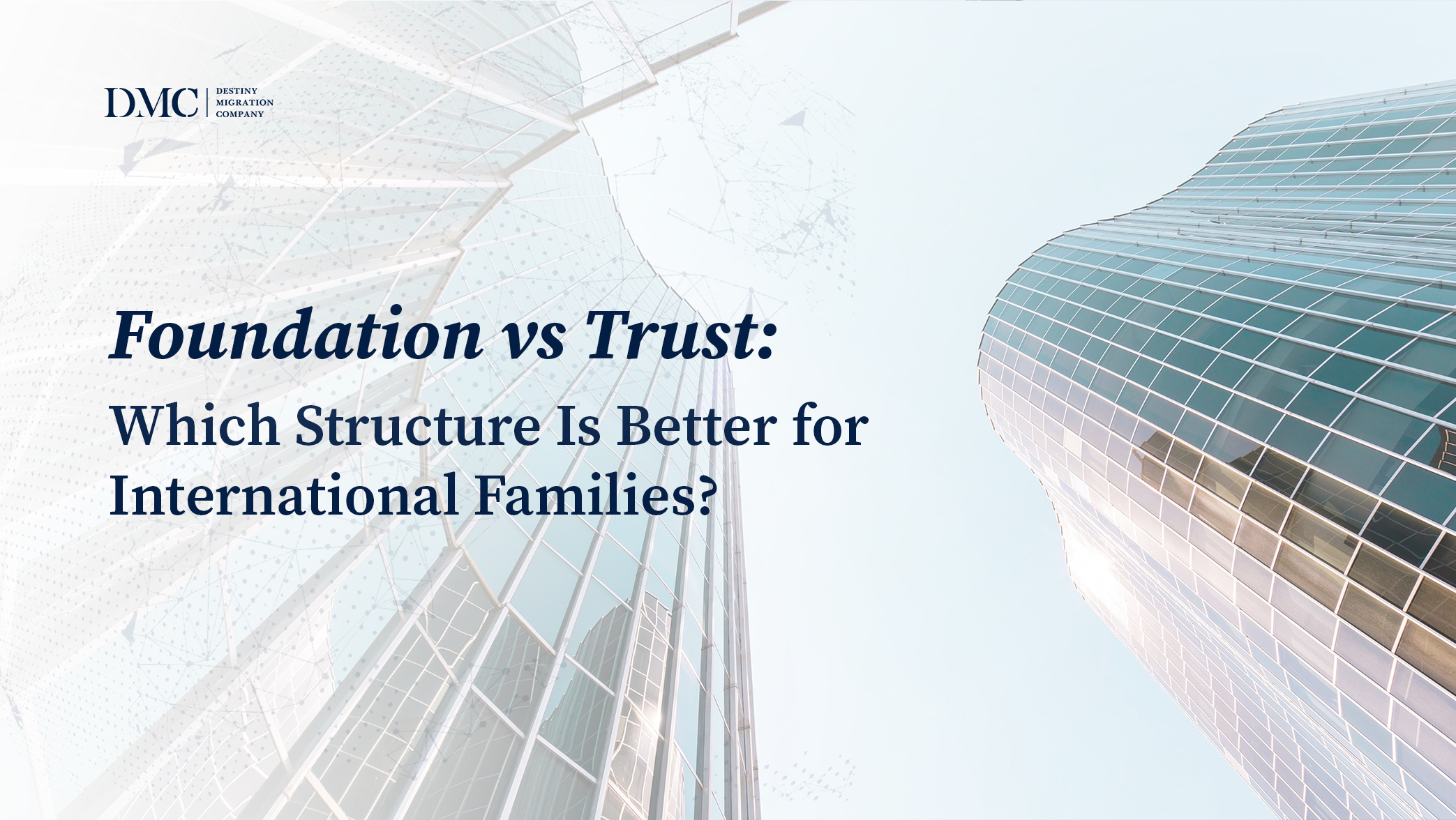Foundation vs Trust: Which Structure Is Better for International Families?

Foundation vs Trust: The Ultimate Guide for International Families
When it comes to global wealth protection and cross-border estate planning, two powerful tools stand out: trusts and foundations. But for international families, which structure is better?
This in-depth guide will help you understand the key differences and decide the best option to protect your assets and secure your family legacy.
What Is a Trust in International Wealth Planning?
A trust is a legal arrangement where a settlor transfers assets to a trustee to hold and manage for chosen beneficiaries.
Key benefits of a trust for global families:
- Flexible control over asset distribution, allowing detailed instructions on how and when heirs receive wealth.
- Strong asset protection, shielding assets from creditors or legal claims.
- Privacy, as most trusts are not publicly registered.
- Widely used in common law jurisdictions, including the UK, Singapore, and many offshore centers.
What Is a Foundation for International Asset Protection?
A foundation is a legal entity (similar to a company but non-commercial) created to hold and manage assets for a specific purpose, either for a family, charitable goals, or both.
Key advantages of a foundation:
- Separate legal entity, meaning it directly owns assets rather than relying on a trustee.
- Ideal for civil law jurisdictions where trusts are not recognized.
- Supports family governance and long-term legacy planning.
- Can include philanthropic activities under one structure.
Trust vs Foundation: Main Differences for Global Families
| Trust | Foundation | |
| Legal form | Legal relationship | Separate legal entity |
| Control | Trustee manages assets | Board or council manages assets |
| Flexibility | Highly customizable distributions | More formal governance, structured rules |
| Privacy | Usually private | Varies depending on jurisdiction |
| Best suited for | Common law jurisdictions | Civil law jurisdictions |
Which Is Better for International Families: Trust or Foundation?
✅ A trust is better if you need:
- Maximum flexibility in distributing assets.
- Enhanced privacy and confidentiality.
- A structure familiar to common law systems.
✅ A foundation is better if you want:
- A formal legal entity for clear ownership and governance.
- A structure recognized in civil law countries.
- The option to include charitable objectives as part of your legacy.
Can You Combine a Trust and Foundation?
Yes! Many international families use a combined structure for maximum asset protection and tax efficiency:
- A foundation acts as a holding entity for family assets or company shares.
- A trust handles detailed distributions to family members or beneficiaries.
This layered approach offers stronger security, flexibility, and control across multiple jurisdictions.
Protect Your Family Wealth with the Right Structure
Choosing between a trust and a foundation, or combining both, is a critical decision in international wealth planning. It impacts asset protection, tax optimization, and family succession.


